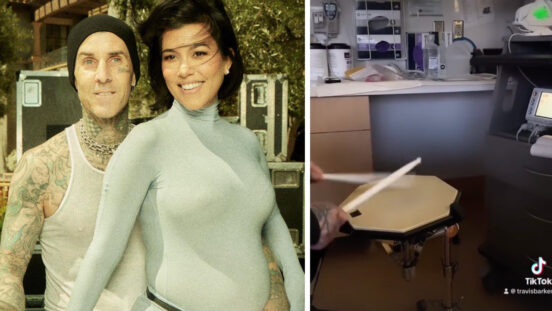Miscarriage: Losing a baby

You’re pregnant and thrilled, but what if you see signs something might be going wrong?
You’re pregnant and thrilled, but what if you see signs something might be going wrong? A miscarriage can be a traumatic event, especially if you don’t know what to do, or who to call for help.
Discovering you are having a baby unleashes a wave of emotions in most mums-to-be. Excitement, joy, trepidation, curiosity and, especially in those early weeks, fear; a nagging anxiety that something might go wrong. For those women who do have signs that they might be miscarrying – pain and bleeding – the experience can be frightening and confusing.
And if you’ve never been through a miscarriage before, what do you do? Do you wait and see what happens or should you head straight to your nearest public hospital emergency department?
A recent outcry in NSW over the treatment of some women in public hospitals who were miscarrying, has highlighted that a busy emergency department may not always be the best place to be if you are losing your baby.
At least four women came forward to complain about their treatment in NSW hospitals, including Jodie Whiteside who was sent to a toilet cubicle on her own to miscarry, then disposed of her 14-week foetus down the toilet on her own. She’s complained that she was not treated sensitively and told the Sydney Morning Herald: “I understand the course of nature and that miscarriages do occur and why, but to flush my child down the toilet!”
Painful but common
Having a miscarriage may not always be a medical emergency, but it is almost always an emotionally painful experience for the couple. Melbourne obstetrician and P&B expert, Dr Christine Tippett says although miscarriages can be very upsetting for many couples, they are also a very common occurrence.
Around one in six established pregnancies miscarry, and as women get older, that figure rises, to around one in two if a woman if 44. In at least two thirds of pregnancies which miscarry, there is an abnormality in the fetus. And in nearly all miscarriages there is nothing anyone can do to prevent it happening.
“In at least two thirds of pregnancies that miscarry, there will be an abnormality in the fetus,” says Dr Tippett. “This is mother nature’s way of making sure that most of the babies we have are normal healthy babies.”
Why we miscarry
When the body recognises that the pregnancy isn’t going well, and that the fetus has died, the body’s response is for the pregnancy to miscarry. Your first sign would be some bleeding, when the placenta comes away from the wall of the uterus and if you were miscarrying, this would be accompanied by crampy pain, which is the uterus contracting to expel the pregnancy. But Dr Tippett says bleeding alone doesn’t always indicate that your body is miscarrying. However, if that bleeding is accompanied by crampy pains, it is more likely that you are miscarrying.
Wait and see
If you notice bleeding, or spotting, deciding what to do next depends on how far along your pregnancy is, how heavy the bleeding is, and whether you have pain or not. Dr Tippett advises if you miscarry when you are less than eight weeks pregnant, even though it’s disappointing and upsetting, it’s very unlikely to cause major problems for your health.
“I don’t think, that for the majority of those women, that they need to go to an accident and emergency department,” Dr Tippett says. “People are often worried that they’re going to bleed catastrophically, but that is very uncommon in less than eight weeks of pregnancy.”
She suggests adopting a wait and see approach – because not all bleeding means the pregnancy has ended. If the bleeding’s not too heavy, and it happened over a weekend, you could probably wait until Monday to call your GP and arrange an ultrasound to assess what’s gone on.
Emergency
On the other hand, if you are more than eight weeks pregnant and your bleeding is heavier than a heavy period and you are in pain, it would be a good idea to call your GP, or visit an emergency department if it is after hours. Dr Tippett says the treatment of women who are miscarrying in emergency departments has been an issue, and they haven’t always been particularly well looked after.
In a busy emergency department, a woman having a miscarriage which probably won’t have serious physical effects for her, may not be treated as a high priority. “So it’s an issue of distress and that’s very important … part of it is being kind to people when they are miscarrying,” says Dr Tippett.
Busy Staff
Sydney emergency specialist, Dr Tony Joseph, acknowledges that there could be improvements made by emergency departments in how they treat women who are miscarrying. Dr Joseph, NSW Chair of the Australasian College for Emergency Medicine, says emergency departments are busy places, which are often under resourced, understaffed and short on beds.
But there are still plenty of good reasons why a woman who is miscarrying should attend an emergency department, says Dr Joseph, co-director of trauma at Sydney’s Royal North Shore Hospital. Even though there is very little which can be done to alter the course of a miscarriage, losing a baby can still pose medical problems for the mother.
Emergency
If you have pain and fairly heavy bleeding with the passage of clots, it’s a good idea to go to an emergency department, even if it’s just to get decent pain relief. Or there’s a chance you might have ectopic pregnancy, which can be life threatening. Dr Joseph says, at Royal North Shore Hospital around one in ten of women who come to hospital with bleeding and abdominal pain in early pregnancy have an ectopic pregnancy.
This means the fertilised egg has implanted in the fallopian tube, rather than the uterus and it is a medical emergency. At Royal North Shore Hospital, which attracted negative publicity following Jana Horska’s experience of miscarrying in a toilet there in late 2007, staff now try to place a woman who may be having a miscarriage in a private room. There she would be examined to sort out if anything more needs to be done medically. Sometimes a woman may need to be admitted to have a curette, which is a procedure to remove tissue from their uterus, if all the pregnancy tissue hasn’t been passed.
“Most people come in wanting to know is the pregnancy is okay? Sometimes it takes a little time to work that out. We take a history, perform a physical examination and take blood tests and arrange for an ultrasound,” says Dr Joseph. “And if further support or explanation is required, we can offer social work support and counselling for the woman’s loss if that is what she wants.”




